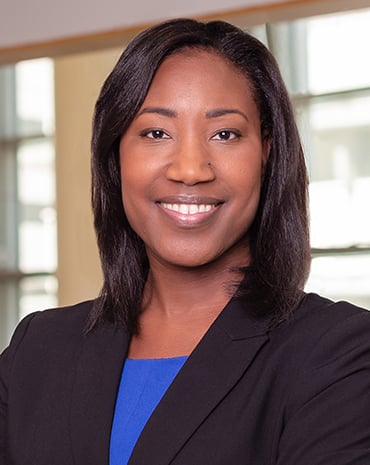Moffitt Study Aims To Improve Lung Cancer Outcomes in the Black Community
Moffitt Cancer Center has launched a new study which is a community-powered initiative to reduce gaps in care in advanced non-small cell lung cancer (NSCLC) outcomes among Black patients. The effort blends cancer care with on-the-ground education and trust-building in underserved communities.

Jhanelle Gray, MD
“Reducing the differences in lung cancer outcomes and treatment access for people in the Black community will improve the overall health of Floridians,” said Jhanelle Gray, MD, chair of Moffitt’s Thoracic Oncology Department and the study’s principal investigator. “By bringing together the voices and experiences of communities with limited access to care, we can identify and address barriers to care, improve access to clinical trials and innovative therapies, ultimately saving lives and contributing to a more equitable and just health care system.”
The Community’s Voice at the Center
For Kayla Jones-Willis, a health educator at Moffitt, the study is deeply personal and rooted in listening first. She meets community members where they are to talk about lung screenings, clinical trial opportunities and longstanding barriers that prevent many Black individuals from seeking care.
“My role is to go into the community and bridge the gap between Moffitt and the Black community,” Jones-Willis said. “I speak with individuals about the resistance we see with clinical trials, educate them on how important lung screenings are and build that foundation of trust before they even come through our doors.”
That resistance, she said, is often rooted in systemic mistrust. Community members share concerns about cost, access and historical mistreatment in medical research.

Kayla Jones-Willis
“People tell me they feel like there’s a divide between the ‘haves and have-nots,’” she said. “They don’t think they can come to Moffitt if they don’t have insurance or money. Others bring up the Tuskegee study or say they’ve never had a Black doctor. They worry they won’t be heard.”
Jones-Willis meets those fears head-on with empathy and facts. She emphasizes that care at Moffitt is available to everyone and that the study is being led by a Black female oncologist, something that often resonates deeply with the people she meets.
“I say, ‘This is the woman leading the trial. She’s working for us,’” Jones-Willis said. “Representation matters. And I remind them that Moffitt has people from all backgrounds who are here because they care.”
Research With Purpose
The study examines how systemic issues such as transportation, insurance and health literacy affect access to screening and treatment.
While the study is focused on improving outcomes in the Black community, Jones-Willis says the broader goal is to close gaps for everyone.
“Yes, our target population for this study is the Black community,” she said, “but for me, it’s about helping anyone who walks up to me. Hispanic, white, whoever. If I can bring someone into Moffitt and help them catch cancer early, I’ve done my job.”
A Nationwide Collaboration
Led by Moffitt, the study includes partners such as:
- Johns Hopkins Sidney Kimmel Comprehensive Cancer Center
- Foundation Medicine
- GO2 for Lung Cancer
- LUNGevity Foundation
Together, the organizations aim to develop a model that can be scaled and shared across the country.




